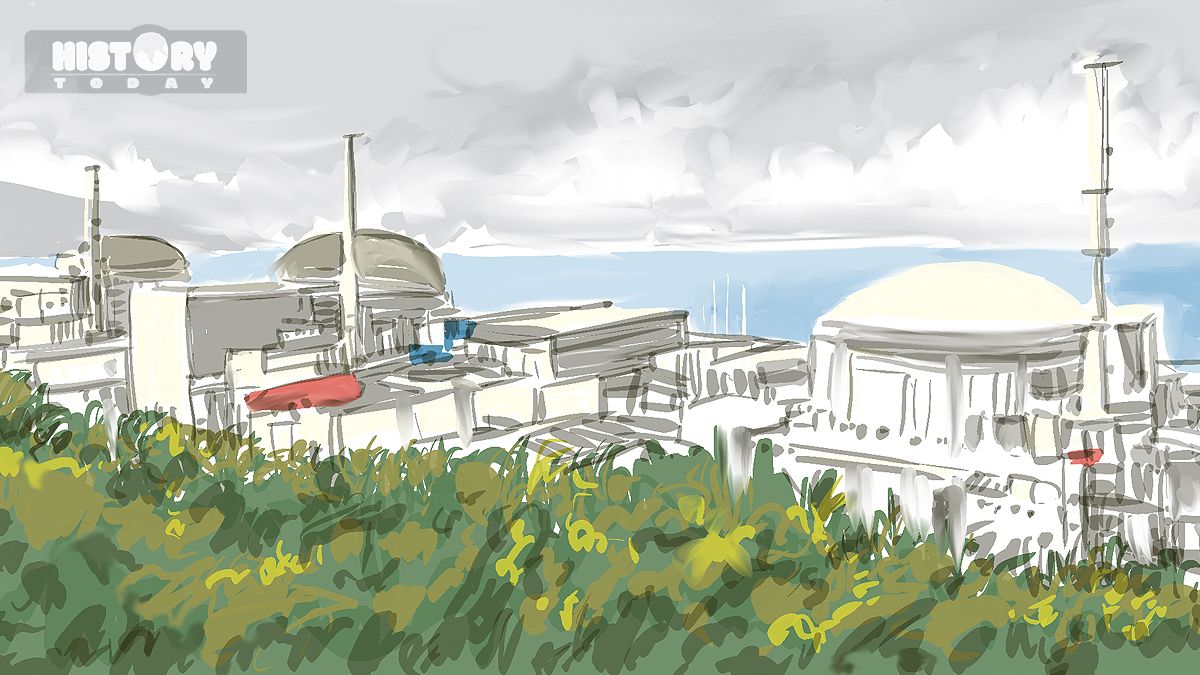March 11 has been a tough day in the world’s history.
On this day in 2011, a major earthquake and a subsequent tsunami caused a nuclear accident in Japan. It was the second worst nuclear accident the country had witnessed.
In 2004, Europe witnessed one of its deadliest terrorist attacks on the same day after a commuter train bombing in Spain, carried out by Islamic extremists, killed 193 people.
About 16 years later, the World Health Organization (WHO) declared the novel coronavirus (COVID-19) outbreak a global pandemic.
Here’s a look at these significant historical events in Firstpost Explainers’ ongoing series, _History Today_ .
Fukushima nuclear accident
It all began on March 11, 2011, when the most powerful earthquake ever, known as the Great East Japan Earthquake or the 2011 Tohoku earthquake, struck off the country’s eastern coast of Sendai in Japan.
The 9.0 magnitude quake was so powerful that it shifted the Earth off its axis and triggered a 15-metre tsunami, which swept over Japan’s main island of Honshu, killing more than 18,000 people and wiping entire towns off the map.
The Fukushima Daiichi nuclear power plant was located about 97 kilometres from the earthquake epicentre.
The nuclear plant’s systems immediately shut down the reactors after detecting the earthquake. Even after a shutdown, the cores remained extremely hot, so emergency diesel generators kicked in to keep coolant running around them.
However, a massive wave that was more than 14 metres high struck Fukushima shortly after. The defensive sea wall was overwhelmed by the water, which flooded the plant and shut off the emergency generators.
In the days that followed, the nuclear fuel in three of the reactors overheated and partially melted the cores, causing a nuclear meltdown. Workers hurried to restore power.
Numerous chemical explosions also occurred at the plant, seriously damaging the buildings. An expanding exclusion zone and evacuations were necessary when radioactive material started to escape into the atmosphere and the Pacific Ocean.
The explosions injured at least 16 workers, and as they attempted to stabilise the plant and cool the reactors, dozens more were exposed to radiation. Following high-level exposure, three people were reportedly admitted to the hospital.
The International Atomic Energy Agency has categorised the Fukushima accident as a level seven event, which is the highest level and just the second incident to achieve this classification following the Chernobyl disaster in 1986.
Madrid train bomb blasts
During the morning rush hour of Thursday (March 11, 2004), as thousands of commuters made their way to work, 10 explosions occurred aboard four commuter trains heading into central Madrid.
The blasts killed 193 people and injured nearly 1,800.
It was the worst Islamist terrorist attack in European history since the Lockerbie bombing in 1988.
The events of 11-M, as the attacks are called in Spain, initially divided the country along political lines as the attacks occurred just three days before general election, which saw the incumbent conservative Popular party of Jose Maria Aznar defeated by the Socialist PSOE led by Jose Luis Rodriguez Zapatero.
The ruling PP initially blamed the Basque militant group Eta, even going so far as to ask national newspaper editors to assure this was the case. However, there was no link found to the group.
However, soon, evidence emerged that 13 improvised explosive devices had been placed on backpacks on the trains.
This suggested that the bombings were carried out by a group of young men, mostly from north Africa, reportedly inspired by a tract on an al-Qaeda-affiliated website that called for attacks on Spain.
WHO declares COVID-19 a global pandemic
March 11 marks five years since the World Health Organization declared the coronavirus outbreak a global pandemic.
The declaration came after more than 118,000 COVID-19 cases were reported in 114 countries. At the time, the global death toll stood at 4,291.
The announcement also resulted in a wave of shutdowns, social distancing, and public health restrictions that would change the world.
India was among the first few countries that declared a nationwide lockdown as a preventive measure against the pandemic.
The health agency declared the COVID-19 outbreak a Public Health Emergency of International Concern (PHEIC), the highest level of alarm on January 30, 2020.
The first coronavirus vaccines were administered in the United Kingdom on December 11 of the same year. Globally, the pandemic triggered an initiative called COVAX that aimed at ensuring swift and fair access to vaccines.
WHO formally declared the conclusion of the global health emergency three years later on May 5, 2023.
With inputs from agencies


)

)
)
)
)
)
)
)
)



